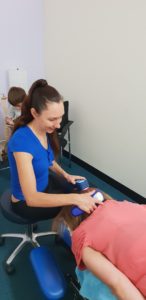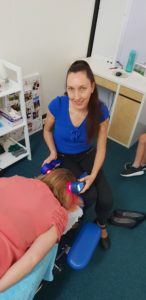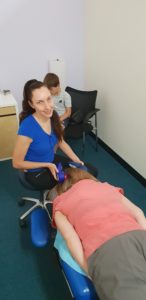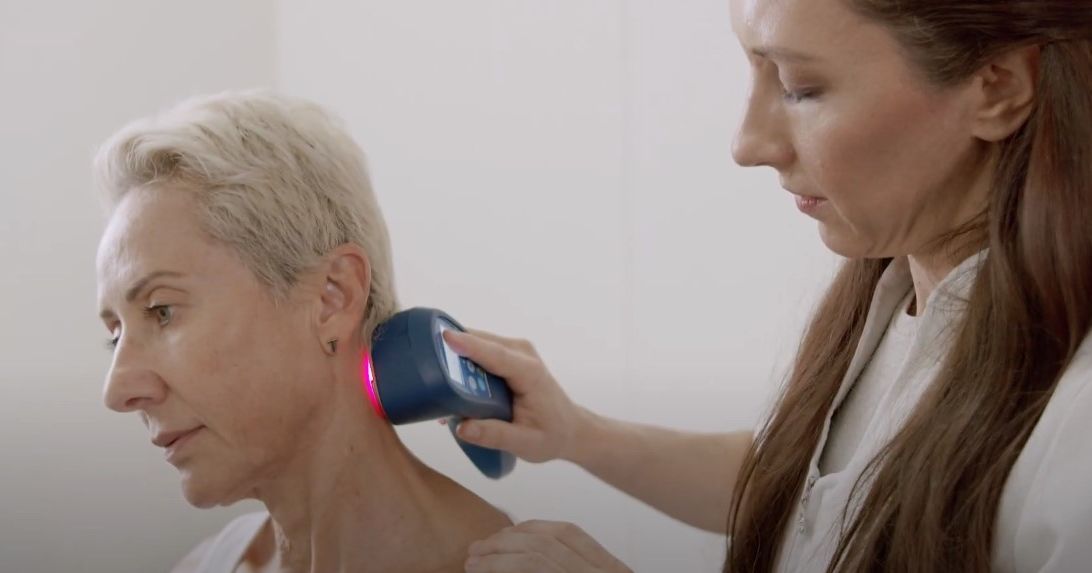Dystonia is a disruption of movement patterns, most commonly repetitive or twisting movements and can also be referred to as sustained abnormal posturing due to altered muscle tone. Dystonia may take one of two forms, Generalised dystonia or focal dystonia.
Generalised dystonia refers to the foot being stuck in a fixed plantarflexion or inversion, while a focal dystonia is confined to a single region, for example the hand. Most cases of dystonia don’t have a specific cause although most conditions are linked with dysfunction of the basal ganglia (part of brain responsible for initiating muscle contractions). Acquired dystonia has been found to be linked with damage of the basal ganglia due to stroke, tumour, infection, brain trauma and oxygen deprivation, while occupational dystonia (writer’s cramp) is due to excessive repetition and smudging of the corresponding cortical maps due to neuro-inflammation.
Signs and Symptoms of dystonia:
Cramping in the foot
A gait where ‘dragging the leg’ is noticed
Uncontrollable blinking
Speech difficulties
Over Stressed and easily fatiguing
Managing dystonia can be in the form of drugs, injections, physiotherapy and cold laser therapy. Unfortunately there isn’t a specific drug that cures dystonia although many are used to temporarily relive symptoms. Injections of botulinum toxin (Botox) may be injected into the area and temporarily weaken the muscles involved relieving muscle spasms. Physiotherapy in the treatment of dystonia varies between each type, for example cervical dystonia can be cured via postural changes and head control training although some forms can be treated using massage and stretching. Finally, one of the most effective treatments of dystonia is in the form of Cold Laser Therapy, also referred to as Low-Level Laser Therapy.
Cold Laser Therapy in the treatment of dystonia works by inhibiting neuro-inflammation along with relieving the spastic muscles of the affected region to provide relief. The vibration setting on the Cold Laser may also be added simultaneously to aid in the management of the condition. Cold Laser Therapy is a new form of alternative treatment and is non-invasive (doesn’t require any surgical incisions) and doesn’t expose patients to any ionising radiation as the laser is cold and doesn’t produce any heat. The low-level laser therapy uses the latest technology to penetrate deeply into the soft tissues without breaking the skins surface and works by actively improving the transport of blood, oxygen and nutrients by inhibiting inflammation and freeing up the affected area.




Protocol of managing dystonia with low level laser Cold Laser therapy (low-level laser therapy) in the treatment of dystonia involves placing the emitter over four locations around the skull. The four locations include: Hairline (front of skull where hair begins to grow), precuneus (back of skull) and the inferior parietal bones (located just above each ear). The cold laser emitter is placed on each location for 5 minutes for the maximum effect and sessions generally last approximately 20 minutes in duration. It’s recommended that patients attend the clinic 5-30 times depending on the severity of the condition, with sessions 2x per week to achieve the best recovery time possible.
Dystonia comes in many different forms, although is classified by the disruption in movement patterns around the body. Management of the condition can involve multiple therapies however cold laser therapy is the preferred means of treatment.
If you’ve been diagnosed with a form of dystonia or are experiencing symptoms such as involuntary muscle contractions or abnormal postures, Cold Laser Therapy at Lakeside Laser may be the right treatment option for you. Our clinic uses multiple laser emitters to help relieve symptoms and support a faster recovery.
Lakeside Laser is located in Gnangara, WA 6077—central to Perth’s northern suburbs—and we welcome clients from across the region, including Wanneroo, Ashby, Mullaloo, Jindalee, Alkimos, Hillarys, Woodvale, Heathridge, Wembley Downs, and Joondalup.
If you’d like more information about how Cold Laser Therapy can support the treatment of dystonia, or if you’d like to book an appointment, contact Dr Linda Schiller on 0468 429 111 or use the ‘Book Now’ tab at www.lakesidelaser.com.au. We look forward to helping you feel your best.



